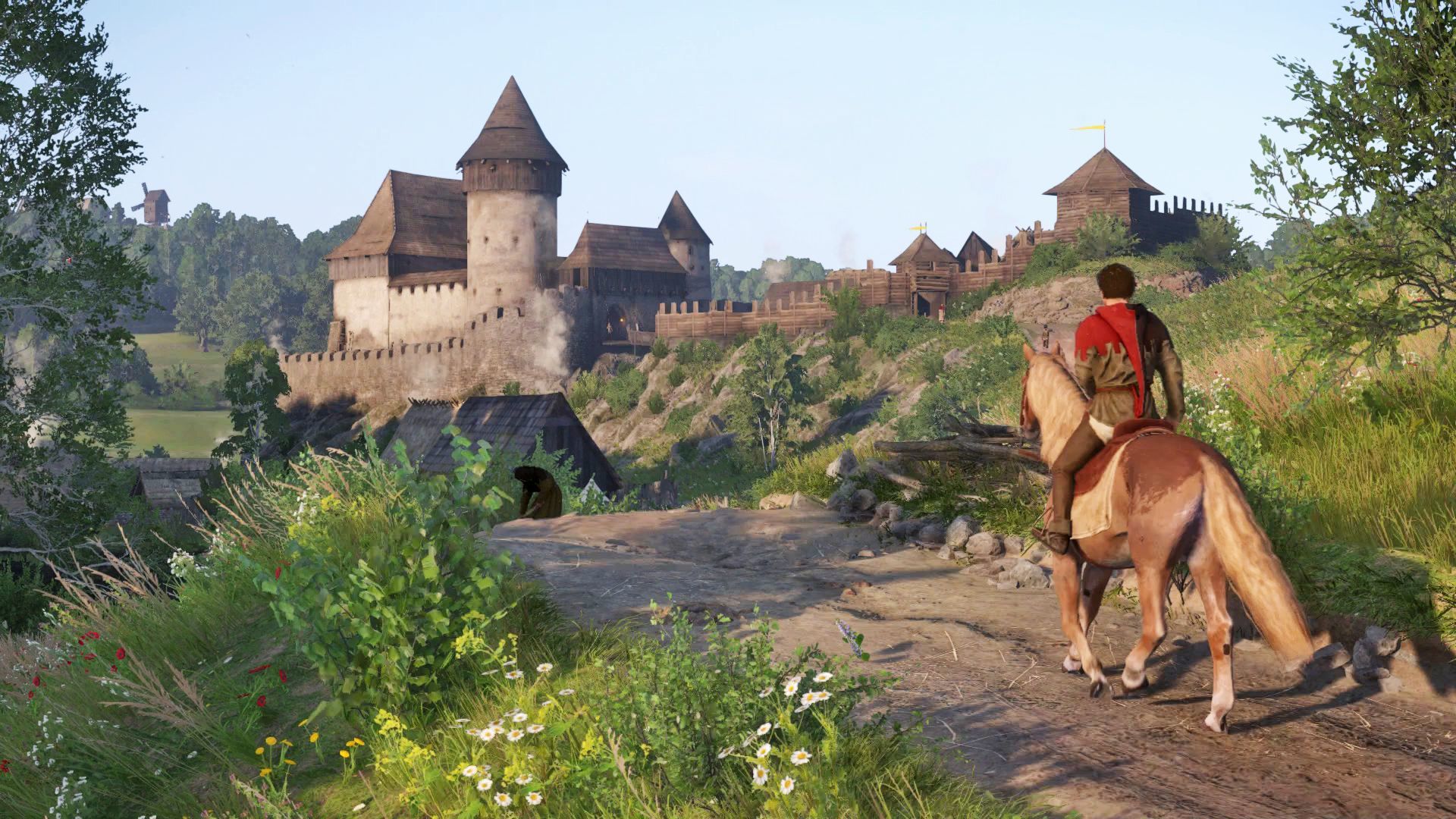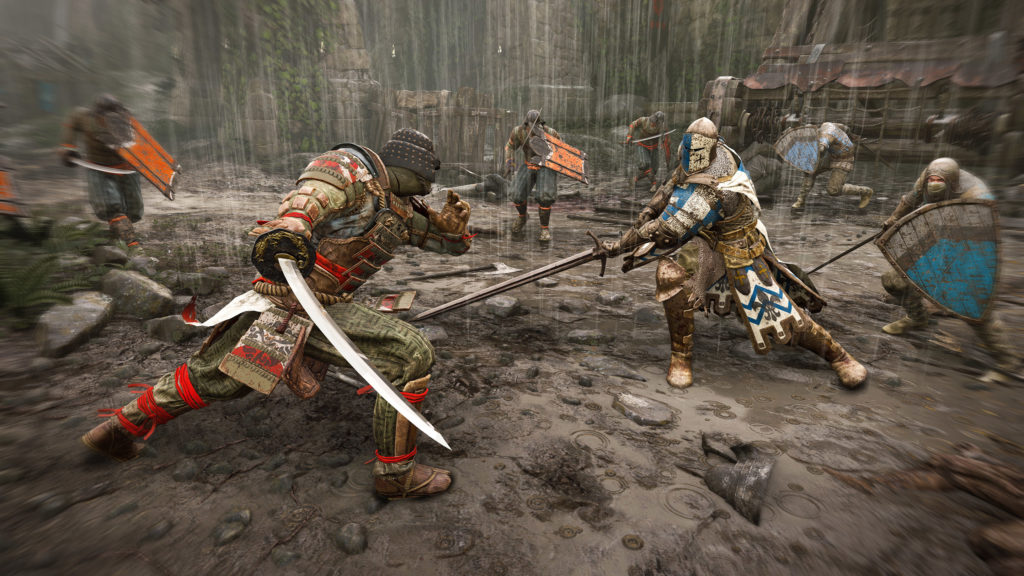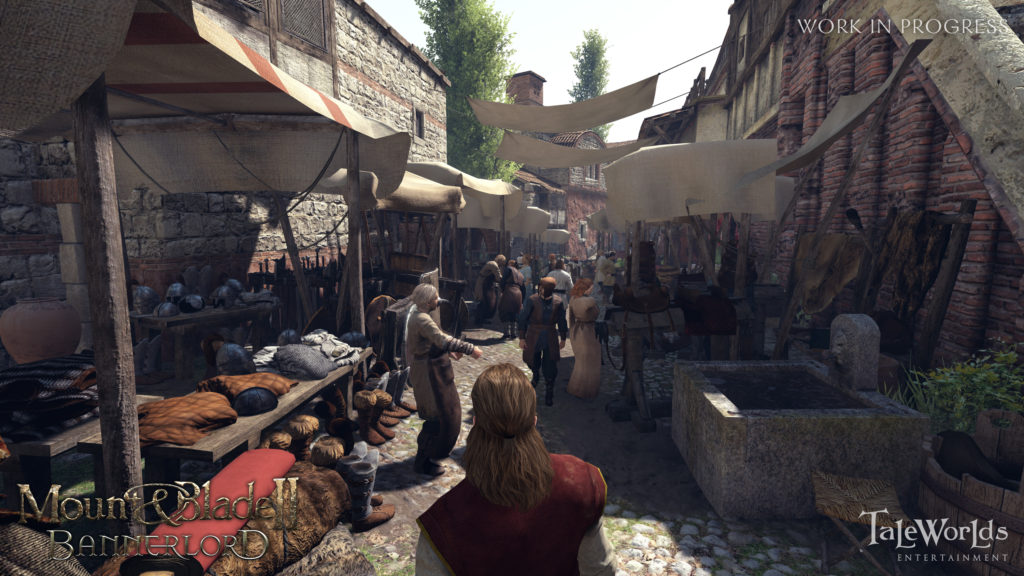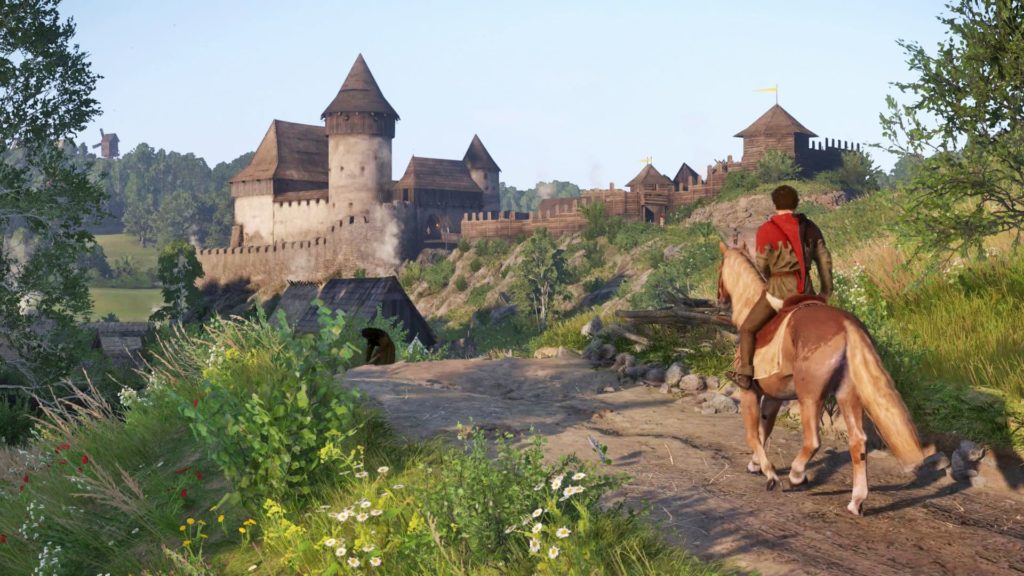
Posted by Ciaran Stoker
7 November 2016I finished my last post with the claim that, for video game medievalism, 2016 has really been building up to something greater than itself in 2017. Indeed, there is plenty to look forward to in the coming year which suggests that the digital Middle Ages is set to become more prevalent than ever. With broader target audiences, increasingly sophisticated technology, and more competition in the market than previously, how is the phenomenon of simulating the medieval past shaping up in the near future?

One of the biggest upcoming medieval titles is Ubisoft’s For Honor, a competitive hack-n-slash experience set in a fictional Middle Ages filled with battling knights, samurai, and Vikings. Whilst the full game is not set for release until 14 February next year, players have been able to put the game to the test in the closed alpha demo that ran from 15 to 18 September. Initial feedback was universally positive, with players particularly impressed by the tactical depth of the game’s combat, as well as the wide variety of medieval arms and armour available to choose from. However, although For Honor has lots to offer gamers who enjoy fast-paced, visceral fighting gameplay, the offerings for medievalists are a little thin on the ground. The game’s creative director, Jason Vandenberghe, stated in a recent interview that ‘this game is about you. And so what kind of warrior are you, right? You can change the skin color of your Vikings, too. You want to have a black Viking? Knock yourself out.’ Indeed, For Honor not only allows players to create characters of any ethnicity but also of either gender. Undoubtedly, this design decision was, in part, spurred on by the problems Ubisoft encountered previously in Assassin’s Creed: Unity, which received considerable flack from the gaming community for lacking any female avatars. So, is For Honor, due for release in a few months time, more appealing to the increasingly diverse gaming demographic than earlier Ubisoft titles? Yes. Is it also interested in matters of historical accuracy? With the exceptions of weaponry and fighting styles, probably not. Don’t read too much into a game that has been described by its creative director as ‘trying to evoke your fantasy of history…It’s warrior wonderland’.

Another medieval title that has received a lot of media coverage in 2016 is TaleWorlds Entertainment’s Mount and Blade II: Bannerlord, due to hit shelves some time next year (although the exact release date is a touchy subject for its eager fans and its secretive development team). Bannerlord is the latest in a video game series that has been praised for combining highly-enjoyable game mechanics with a genuine interest in depicting a no-thrills medieval world devoid of dragons, wizards, and modern attitudes to race and gender. The Mount and Blade franchise has previously dabbled with ‘real’ historical settings, with the spin-offs Viking Conquest and Napoleonic Wars based in ninth-century Britain and nineteenth-century France and Belgium respectively. Bannerlord looks set to maintain TaleWorlds’ high standard of gameplay quality and historicism, with siege warfare, dynastic politics, and medieval industry and economics all receiving revamped features and representation in the latest addition. Although Bannerlord will portray a fictional medieval world, the details in the setting – including everything from diet to architecture – have heavy parallels with the centuries following the collapse of the Roman Empire. This, of course, says nothing about the undoubted abundance of player-made modifications that will build on the base game. In earlier Mount and Blade titles this has included user-created worlds set in the Hundred Years War, Feudal Japan, and the Crusader States, to name just a few. Although still a way off, Bannerlord has shown a lot of promise for medievalist gamers this year and is certainly one to watch.

The other upcoming medieval title that has been turning heads at this year’s major gaming events is Kingdom Come: Deliverance, the first outing of Czech developers Warhorse Studios. Originally set for a late 2016 release, this open-world role-playing game, set in fifteenth-century Bohemia (today’s Czech Republic), has been pushed back into 2017 to allow developers more time to fine tune their labours. While Bannerlord projects a ‘realistic’ medieval fantasy world, Kingdom Come has gone one step further, according to its creative director, Dan Vavra, on Games.cz: ‘We set forth to make a Middle Ages simulator and we feel that this is what a lot of other people want as well. So far it seems that this is indeed the case.’ Vavra’s comment alludes to the fact that the money behind Kingdom Come (over £1 million to date) has been provided almost entirely by crowdfunding using kickstarter.com. Its promises of including traditional medieval music for the soundtrack, realistic swordfighting mechanics, and a mundane medieval environment, reflect the historical interests of a gaming community that wants to get to grips with a muddy, bloody, and unvarnished medieval past. Without the pedigree enjoyed by TaleWorlds, it will be interesting to see how Warhorse Studios’ fledgling development team (which, admittedly consists of many veterans of the game development world) fares when Kingdom Come is eventually released.
The release of three big medieval video game titles in the same year is by no means coincidental. It is clear from the current shape of the gaming industry that history, the Middle Ages in particular, continues to be an important source of inspiration for developers. Discussion of the reasons behind this is worthy of a post on its own. However, it is sufficient to state here that people like medieval games because they offer a setting that, while quite removed from our own, still retains a sense of familiarity. The innate appeal of a world that seems much simpler than the globalised present but is equally full of human activity and dilemmas is demonstrated well in these upcoming titles – and I can only hope that they do justice to a past that is fascinating even without additional layers of digital gloss.
Ciaran Stoker completed his MA in Medieval Studies at Exeter this year. His MA dissertation investigated video game medievalism.